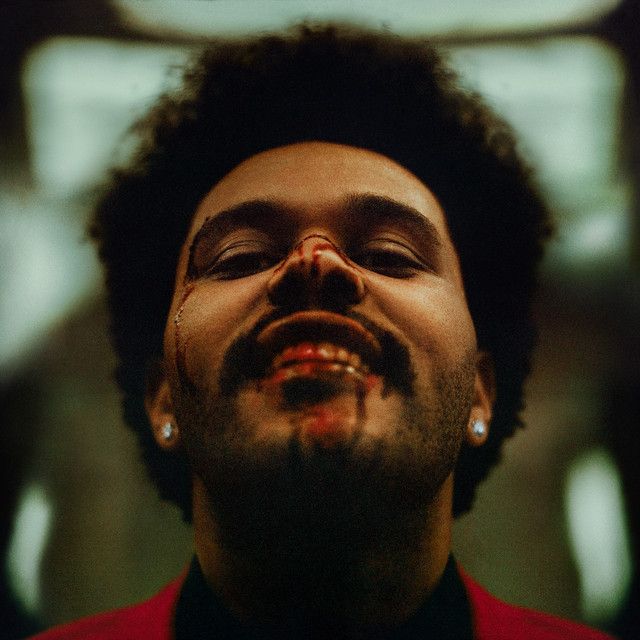The Weeknd returns with ‘After Hours’
The album art for “After Hours”
March 26, 2020
Canadian singer Abel Tesfaye, aka The Weeknd, is arguably the best modern R&B artist out there. The soul sensation hit records with a full length, 13-track LP, After Hours, a follow up to his 2018 hit, My Dear Melancholy.
According to Billboard, After Hours’ sales are expected to skyrocket by the end of this week: “The Weeknd’s new album After Hours is off to a hot start, according to industry forecasters. Those in the know suggest it could earn over 400,000 equivalent album units in the U.S. in the week ending March 26.”
The new album delves into a darker side of The Weeknd’s music, exploring tones that brings listeners back to the 80s. Although the album is anchored by the same signature lyrics and brooding croons we all love The Weeknd for, each song comprises fresh vocals, bound together by masterful production. After Hours conceivably is The Weeknd’s strongest and most passion-filled project yet.
“I feel confident with where I’m taking this [new] record. There’s also a very committed vision and character being portrayed and I get to explore a different side of me that my fans have never seen,” The Weeknd describes in a recent interview regarding After Hours.
The tracks bleed into one another, depicting a glorious tale of loneliness and heartbreak; the songs act as anecdotes that entwine The Weeknd’s past, present, and how he sees himself in the future.
“I don’t like to leave my house too much. It’s a gift and a curse, but it helps me give undivided attention to my work. Even when I’m not working I’m always somehow still working. It distracts from the loneliness, I guess,” The Weeknd describes in a recent interview regarding After Hours.
The album starts off with several melancholic croons such as “Too Late” and “Scared to Live”, which explore sounds similar to those of The Weeknd’s earlier, debut years. The album transitions from sorrowful croons to faster, unhinged beats.
The single “Heartless”, places itself as a more raw version of “The Hills” from The Weeknd’s critically acclaimed LP, The Beauty Behind the Madness. The track begins as an empowering anthem and then transforms, showcasing his vulnerability as a man who only wants to love.
The ninth and tenth tracks respectively, single “Blinding Lights” and “In Your Eyes” convey the most 80s energy, throwing listeners back to the 2016 Starboy era. “Blinding Lights” traverses a new type of techno, dream-pop vibe while at the same time not straying far from The Weeknd’s original sound, offering an incredibly unique aspect to the album and is easily one of the best songs in the album. The Weeknd’s slightly-delusional, Joker vibe transports listeners to the depths of the singer’s mind.
Additionally, After Hours is a testament that exhibits The Weeknd’s vast improvement as a lyricist. Songs such as “Snowchild” especially portray The Weeknd’s struggles to have achieved success, with lines such as: “I used to pray when I was 16/ If I didn’t make it, then I’d probably make my wrist bleed/ Not to mislead, turn my nightmares into big dreams/ Whole squad mobbin’ even though we only six deep.”
The selling point of this album, and what makes it so beautiful, is the clarity of tone in each and every track. The clarity which was lacking in some of The Weeknd’s predecessors. The anecdotal nature of the album allows for him to convey his tale in a focused point of view, and voice.
“By balancing the two sides of his musical personality – not to mention add some levity to that boring, bad-taste id – After Hours feels like the first Weeknd album in a while to offer up a clear, singular vision rather than something frustratingly abstract.” The Guardian critiques.
However, we would like to see some variety in the type of music The Weeknd presents in the future. As brilliant as his music is, it can at times be repetitive and monotonous to hear the same brooding lyrics reminiscing a past lover. While The Weeknd’s musical exploration is a treat in most respects, a small part of us wants The Weeknd to go back to his Trilogy roots, where the songs were gut-wrenching and to-the-point, especially considering its March 20 release date amongst the COVID-19 pandemic, The Weeknd’s pining album seems a bit ill-fitting.
Overall, After Hours is a masterpiece. It’s incredibly versatile, serving as both a ‘long drives in the rain’ and late-night-party album. For those who enjoyed Weeknd’s previous albums such as Trilogy, and My Dear Melancholy, After Hours may come as a different yet fresh tune that will slowly pull you in.
9.5/10, highly recommend









